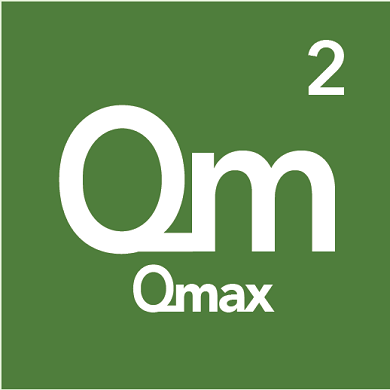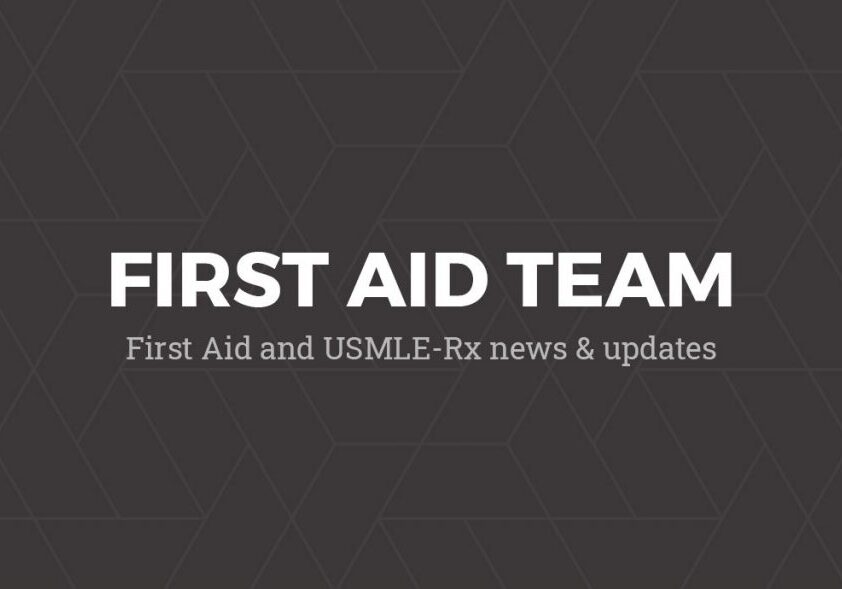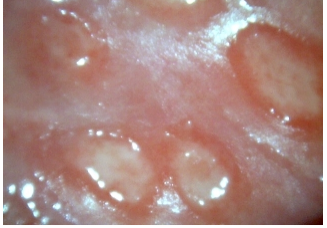Check out today’s Step 2 CK Qmax Question Challenge.
Know the answer? Post it in the comments below! Don’t forget to check back for an update with the correct answer and explanation (we’ll post it in the comments section below).
A 6-year-old boy presents to the clinic because of a rash. He had a sore throat yesterday. He awoke this morning with an itchy rash on his abdomen. He has “felt warm” for the past 2 days. His temperature is 39.4°C (103°F). He is irritable but cooperative. The rash on his abdomen is erythematous, with vesicles grouped on an erythematous base. A diagnosis of chickenpox is made.
Which of the following potential complications can be successfully treated with intravenous acyclovir?
A. Bacterial superinfection
B. Isolated cerebellar ataxia
C. Shingles
D. Varicella conjunctivitis
E. Varicella pneumonia
———————–
Want to know the ‘bottom line?’ Purchase a USMLE-Rx Subscription and get many more features, more questions, and passages from First Aid, including images, references, and other facts relevant to this question.
This practice question is an actual question from the USMLE-Rx Step 2 CK test bank. Get more Step 2 CK study help atUSMLE-Rx.com.





C
E varicella pneumonia
E
C
I believe the most effective reason is in the prevention of Varicella Zoster. or C
E?
e
The correct answer is E. The child has chickenpox secondary to varicella-zoster viral infection. The varicella-zoster virus only affects humans, and commonly causes chickenpox in children, teens, and young adults. It causes herpes zoster (shingles) in adults and rarely children. Pneumonia is an uncommon complication of varicella infection, but accounts for the majority of varicella hospitalizations. The onset is typically within several days of rash appearance and manifests as gradually progressive dyspnea and dry cough. Males, smokers, pregnant women, the very old or very young, and the immunocompromised are at increased risk of developing pneumonia. Mortality rates have been estimated between 10%-30% and are highest in the immunocompromised. Intravenous acyclovir is the appropriate treatment.
A is not correct. Superinfection with invasive Group A streptococci is the most common complication of chickenpox, often with development of cellulitis and bacteremia. Treatment of the bacterial infection is usually adequate. Intravenous acyclovir is not specifically indicated.
B is not correct. Central nervous system involvement is rare, but when it does occur, cerebellar ataxia is the most common presentation. If it occurs as an isolated phenomenon, the prognosis is excellent and no treatment is required. If, on the other hand, there are signs and symptoms of meningoencephalitis such as fever, headache, change in sensorium, stiff neck, convulsions, and decreased alertness, the prognosis becomes more dire: approximately 10%-27% of cases of meningoencephalitis are fatal. Although meningoencephalitis has no proven benefit from intravenous acyclovir, there is anecdotal support for this agent’s use.
C is not correct. Shingles (herpes zoster) is a rare complication in a child with chickenpox. Shingles is due to the reactivation of the varicella-zoster virus within a person’s body. Chickenpox is due to an initial infection with varicella-zoster virus. Once the chickenpox resolves, the virus may remain active in nerve cells. Risk factors for reactivation include immunocompromised state, old age, and having chickenpox before 18 months of age. Several lines of evidence suggest that antiviral therapy hastens resolution of cutanenous lesions and the acute neuritis of herpes zoster. Whether antiviral therapy prevents post-herpetic neuralgia is unclear. Administration of oral acyclovir within 48 to 72 hours of the onset of the rash has demonstrated clinical benefit. IV antiviral therapy is not necessary unless it is complicated, such as herpes zoster ophthalmicus.
D is not correct. Conjunctivitis is not a recognized complication of varicella-zoster virus infection.
Great explanation thank you